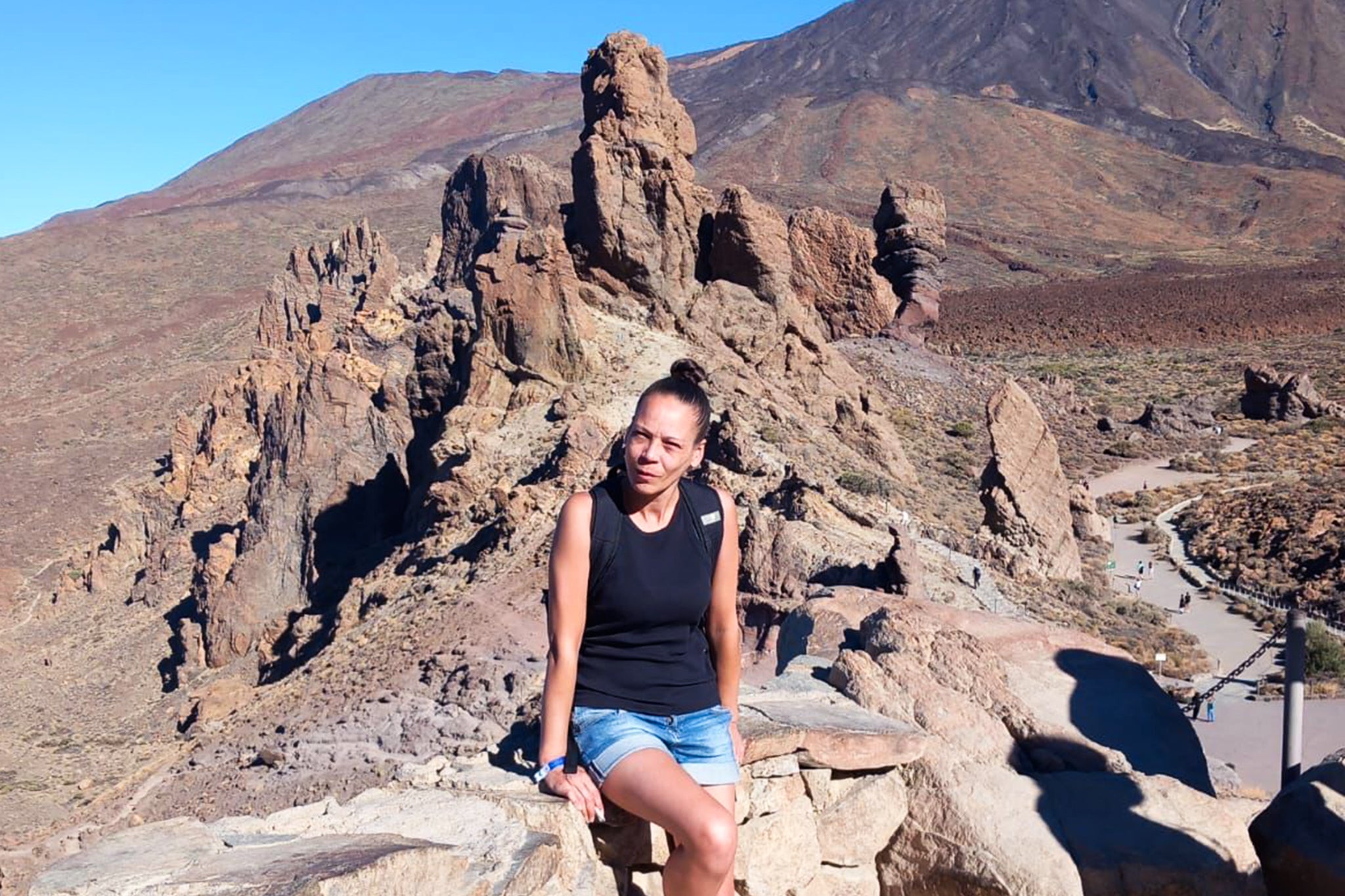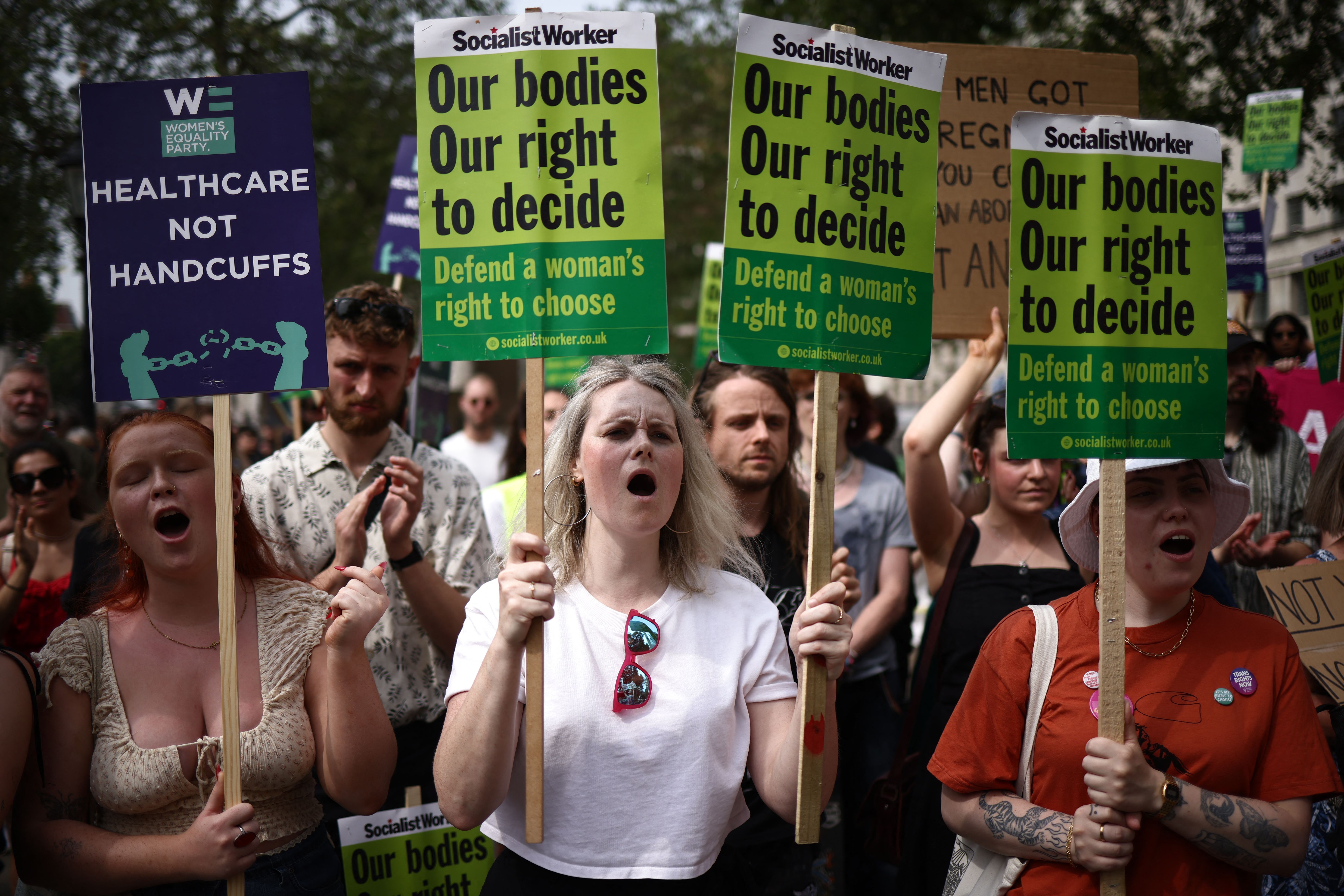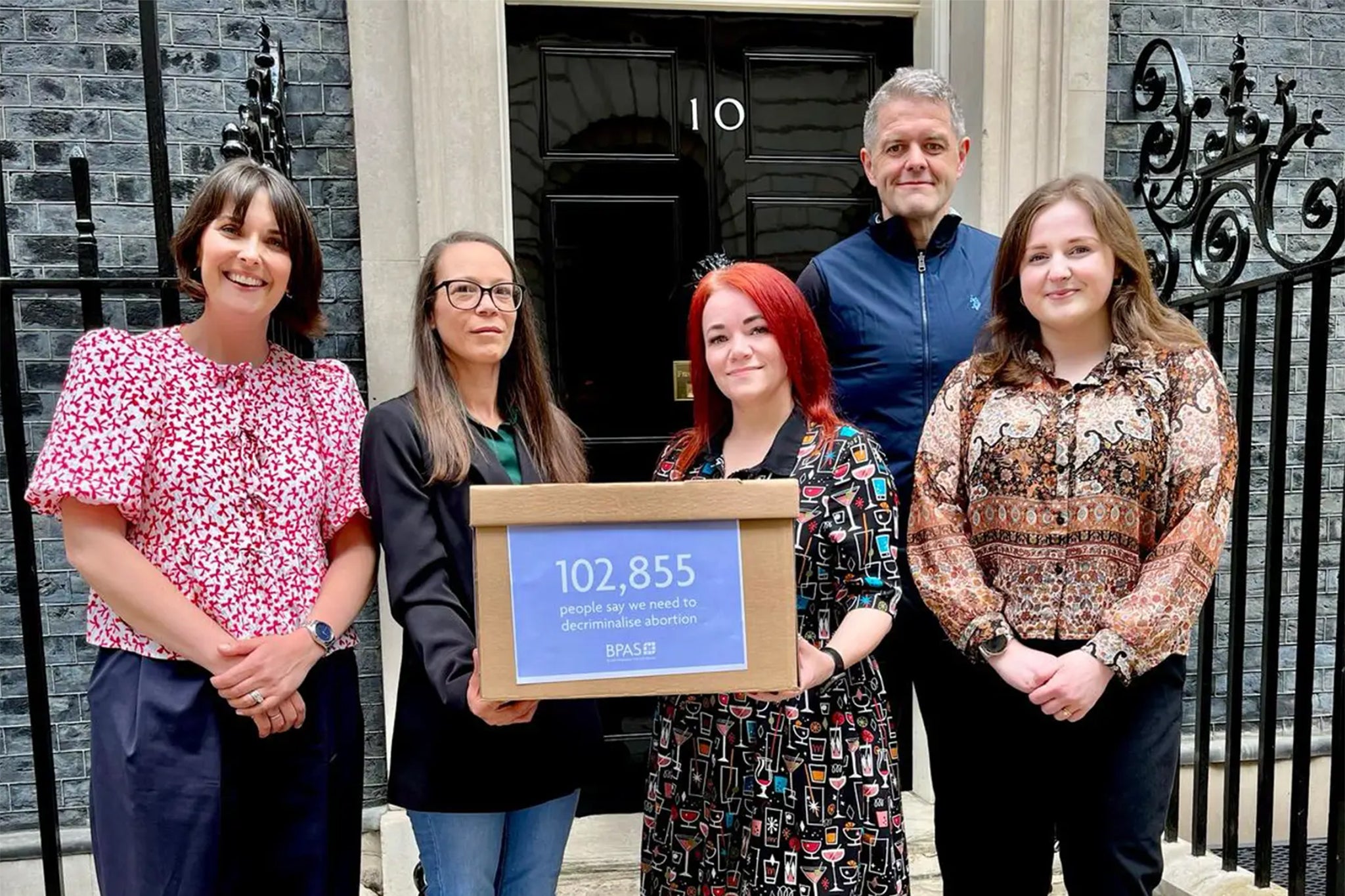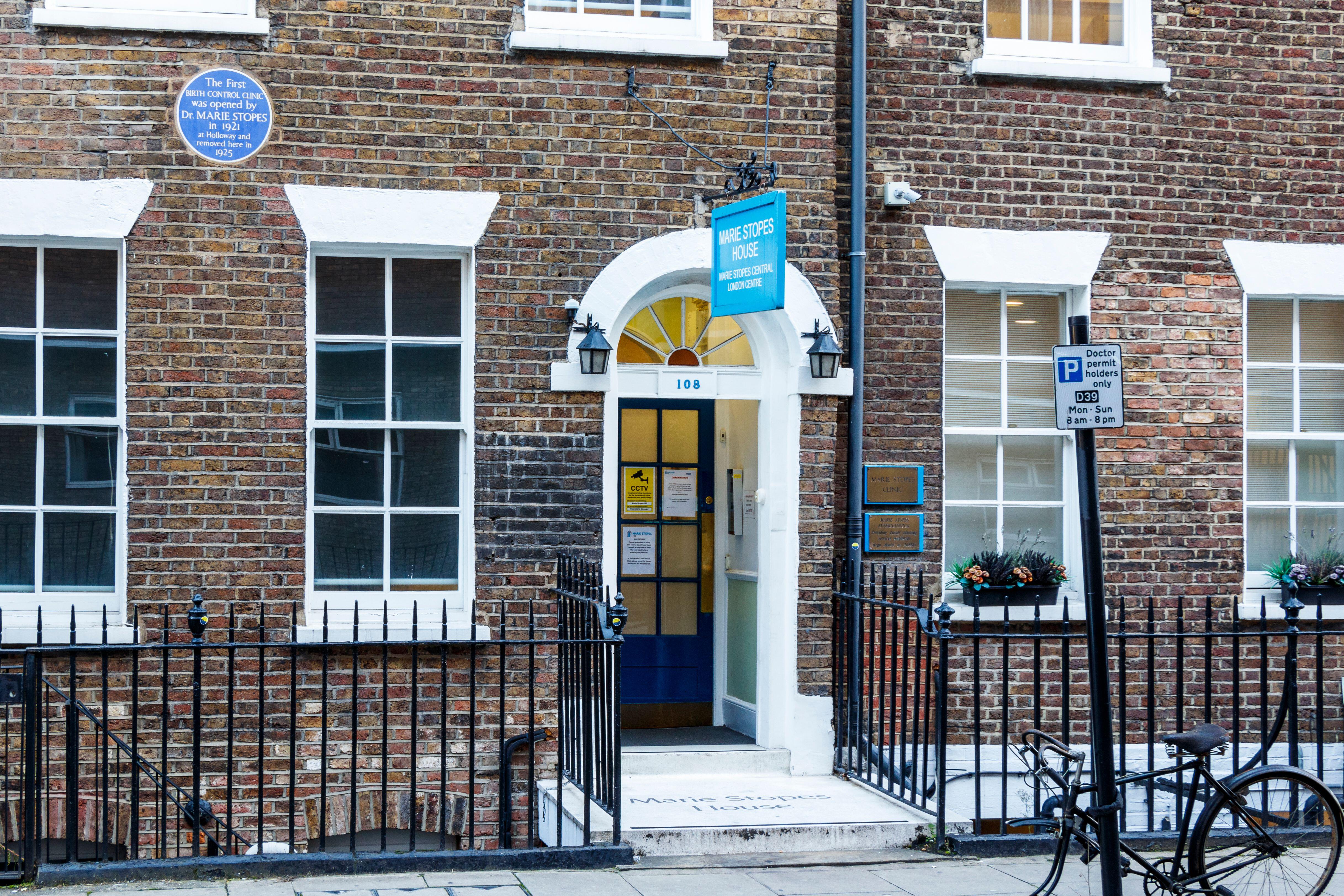ARTICLE AD BOX
Sammy was being ferried into an ambulance by paramedics—after giving mouth-to-mouth resuscitation to her newborn baby—when she realised there were around eight police officers in her living room.
The mother, in her thirties, had just given birth at home to a baby boy who arrived over three months early, weighing just one pound and seven ounces—little more than a bag of sugar.
Police had arrived to assist her in giving life-saving CPR. But Sammy (not her real name) says that, while in shock from the traumatic and unexpected birth—and with her baby still fighting for his life—she suddenly found herself at the centre of a criminal investigation.
This would become a devastating 51-week ordeal, triggered by England’s 164-year-old law criminalising abortion, despite the fact that she hadn’t actually had one.
“My front room was full of police officers—there must have been about eight. Then out on the street, my husband said there were two ambulances, two unmarked police cars, and a regular police car. I just thought: why?”
Sammy has decided to retell her horrific experience as the issue of illegal abortion in the UK reached parliament this week.
Tonia Antoniazzi, Labour MP for Gower, has put forward an amendment to the Criminal Justice Bill to remove the criminal aspect of ending abortions illegally, to bring England and Wales in line with Scotland and Northern Ireland. MPs are expected to vote on the issue this summer.

In an interview with The Independent, Sammy said: “They were following my husband around—he wasn’t allowed to be alone. I was at the hospital, not knowing what was happening at home. Then, they told my son he had to leave. He had ten minutes to get his things and get out.”
According to Sammy, that day police seized all their electronic devices, including two Xboxes, cordoned off their home with crime scene tape, and arrested her husband when he returned to pick up clean clothes—“under suspicion of procuring a miscarriage by instrument or tablets”.
They dug through bins and held on to her placenta for months. The next morning, when she was discharged from hospital while her baby fought for his life in an incubator, she says she was questioned by police about whether she had attempted to end the pregnancy illegally.
Sammy told police she had only explored the option of a termination and researched abortion pills online, but had been told she was too far along in the pregnancy to go ahead with it.
“I was open and honest from the get-go, but we were treated like criminals,” she says, visibly distressed. “When they took me to the police station for questioning—I cried through most of it and just said, ’No comment.’”

Her husband, released on bail, was initially barred from seeing or even communicating with Sammy or their baby. Even when that restriction was eased, the parents were only allowed to visit their new son under police supervision. This went on for 51 weeks.
Shortly before the baby’s first birthday, the investigation was finally dropped, and Sammy and her husband were cleared. But the damage had been done.
“No other woman should have to go through that. Abortion should be decriminalised,” she says.
Sammy’s story, though horrifying, is not an anomaly. She is one of more than 100 women whom rights groups believe have been investigated by police in recent years under the same 164-year-old Offences Against the Person Act which Ranee Thakar, the president of the Royal College of Obstetricians and Gynaecologists (RCOG), tells The Independent is “the oldest healthcare law still in existence.”
Some women have even had their children removed. In fact, there has been an unprecedented surge in convictions related to abortions and pregnancy losses under this legislation.
Six women have appeared in court over the past two years charged with ending their own pregnancies. Prior to that, only three convictions had been reported for illegal abortion since the law was introduced in 1861.
There is a common misconception that abortion is legal in the UK. The 1967 Abortion Act legalised terminations in England, Wales, and Scotland, now up to 24 weeks, provided two doctors sign off that continuing the pregnancy would pose a risk to the woman’s physical or mental health.
In the wake of the pandemic, that was amended to allow eligible women in the first 10 weeks of pregnancy to have a medical abortion at home.

Outside of those bounds, women are at risk of jail—which is where rights groups say the problem lies. Just this week, Nicola Packer—a registered nurse who endured a four-year investigation and public trial—was unanimously acquitted by a jury at Isleworth Crown Court in southwest London.
She had been accused of “unlawfully administering to herself a poison or other noxious thing” with the “intent to procure a miscarriage.”
In the wake of her acquittal, she told The Independent the process had been deeply traumatic—critics said she faced public shaming at the hands of prosecutors.
“The stress for more than four years was immense, and it was impossible to live normally,” Ms Packer tells The Independent.
“Although it’s a relief that I was finally believed and it’s all over, it’s going to be very hard to ever trust the NHS and police again.”
Jonathan Lord, the clinician in charge of Ms Packer’s care and co-chair of the RCOG abortion taskforce, slammed the process as a “vindictive and brutal prosecution in which the Crown Prosecution Service (CPS) weaponised victim-shaming.”
Lord, who said he has had to help several women and teenagers who have been investigated by the police, says it is “incredibly traumatic, where every element of your most personal life is exposed, your phone and computer are taken and searched for messages, images, menstrual apps, and internet searches”.
“Even in those who are never charged, most have suffered long-term mental health issues and post-traumatic stress disorder and say they cannot trust the NHS or police again.”
.jpeg)
The situation is now so urgent that 60 MPs, multiple Royal Colleges (including the RCOG), and numerous healthcare professionals are backing a cross-party amendment to the Criminal Justice Bill that would remove women from the criminal law in relation to ending their own pregnancies and bring England and Wales.
The amendment was laid in Parliament on Tuesday night by Ms Antoniazzi.
She tells The Independent that an increasing number of women have been subjected to “utterly deplorable” criminal investigations for a “crime” that does not even apply in two other parts of the UK: Scotland and Northern Ireland.
“The harm inflicted upon these women is lifelong and profound. This cannot continue,” she says adding it particularly impacts vulnerable women.
The Royal College’s Dr Thakar said one of the biggest concerns is the chilling effect the law could have on women and healthcare providers.
The RCOG was so alarmed by the rise in investigations that it issued new guidance to medical professionals last January, urging them not to report women to police if they suspect a pregnancy may have been ended illegally.
“Many women may become too afraid to seek help, fearing criminal consequences. Abortion care is a safe, essential part of healthcare. By criminalising it, we make a safe procedure unsafe because women avoid seeking help when they need it,” she continues.
“They should be treated with care and compassion, without judgment or fear of imprisonment. Otherwise, the result is silence and suffering.”

Another backer of the law change is the British Pregnancy Advisory Service, which told The Independent that women “are being arrested straight from the hospital ward, their homes searched, and their children taken away.”
“This cannot continue. Members of Parliament have a moral duty to decriminalise abortion for women and end the threat of police, prosecutions, and imprisonment once and for all,” Katie Saxon, Chief Strategic Communications Officer at the British Pregnancy Advisory Service, BPAS, said.
It comes amid a groundswell of support for change. In a separate initiative launched this month, a cross-party group of MPs led by MP Stella Creasy called for abortion to be protected as a human right in England and Wales, following a similar, successful campaign in Northern Ireland in 2019.
Other countries have enshrined a human right to access abortion, Creasy said at the time, adding that now is the time to act as “politicians are using women’s bodies as their battlefield.”
Last month campaigners spearheaded by teacher Gemma Clark and supported by BPAS, delivered a petition to Downing Street which was signed by over 100,000 UK residents calling on parliament to reform the abortion law. It has triggered a debate in Parliament which is expected in the coming weeks
The Independent asked the Crown Prosecution Service about the devastating impact the surge in investigations and convictions was having on women involved—particularly in the wake of Nicola Packer’s trial, during which personal details were shared in court.
A spokesperson defended the move, saying that information was shared “only to establish the fact of when she may have fallen pregnant, and her understanding of the gestation period.”
“Our prosecutors exercise the greatest care when considering complex and traumatic cases such as this one,” a spokesperson added.

A Government spokesperson, meanwhile, said that “All women have access to safe and legal abortions on the NHS” and that “Decisions to prosecute—within existing legislation—are for the CPS and are incredibly rare.”
In Sammy’s case, the relevant police force acknowledged in a statement to The Independent the “particular sensitivities of this case” but said the initial investigation was undertaken “to safeguard all involved.”
They defended the action to investigate and the duration: “This was a complex investigation, requiring extensive forensic and medical evidence, and unfortunately these kinds of enquiries take time.”
But Sammy says she fears that other women will “lie and hide” if they find themselves in her position unless the law changes, because of fear of being prosecuted.
During her investigation, she says she spent nearly a year “thinking every little car door that slams is the police coming to take me and my husband away.”
Now she is trying to piece her life back together, while still worrying the police might come after her again.“I was open and honest with them… that openness and honesty got me nowhere. I got treated like a criminal when I am not one.
“Look at the outcome. All we got was an apology and a message that the investigation was dropped.“The law needs to be changed. I wouldn’t wish this upon anyone. ”









 English (US) ·
English (US) ·